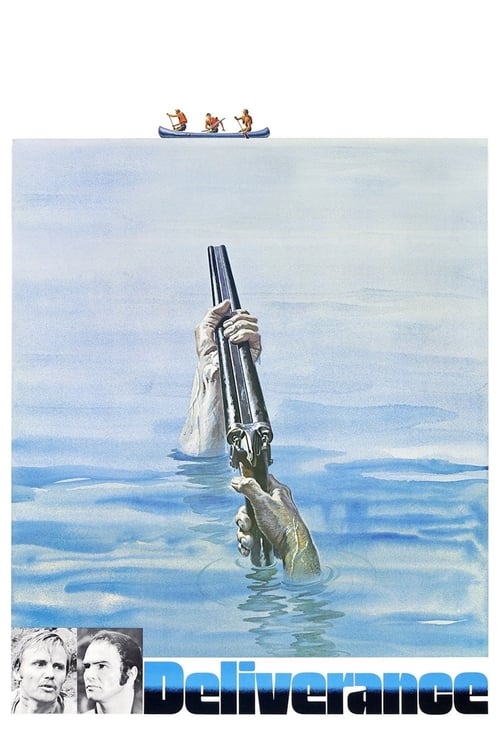
Title: Deliverance
Year: 1972
Director: John Boorman
Writer: James Dickey
Cast: Jon Voight (Ed Gentry),
Burt Reynolds (Lewis Medlock),
Ned Beatty (Bobby Trippe),
Ronny Cox (Drew Ballinger),
Ed Ramey (Old Man at the Gas-Station),
Runtime: 109 min.
Synopsis: Intent on seeing the Cahulawassee River before it's turned into one huge lake, outdoor fanatic Lewis Medlock takes his friends on a river-rafting trip they'll never forget into the dangerous American back-country.
Rating: 7.31/10
Into the Wild Heart: The Unflinching Mirror of Deliverance
/10
Posted on July 15, 2025
John Boorman’s Deliverance (1972) is a cinematic gut-punch, a film that wields nature as both a sublime canvas and a merciless adversary to probe the fragility of human hubris. Adapted from James Dickey’s novel, the film follows four urban men on a canoeing trip through Georgia’s untamed Cahulawassee River, only to confront the raw, indifferent power of the wilderness and the darker corners of human nature. Boorman’s direction is the film’s pulsing heart, transforming a simple survival tale into a mythic descent. His camera doesn’t merely capture the Chattooga River’s churning rapids but makes them a character beautiful, unpredictable, and unyielding. The choice to shoot on location, with minimal reliance on studio sets, imbues every frame with an authenticity that amplifies the stakes; you can almost feel the cold spray and hear the river’s roar.
The screenplay, penned by Dickey himself, is lean yet layered, balancing primal tension with existential dread. It sidesteps heavy-handed moralizing, letting the characters’ choices often flawed, occasionally heroic speak for themselves. The infamous “squeal like a pig” scene, though controversial, is not gratuitous; it’s a brutal pivot that shatters the men’s illusions of control, forcing viewers to grapple with discomfort rather than offering easy catharsis. However, the script occasionally stumbles in its pacing, particularly in the final act, where the resolution feels rushed, as if the story’s weight outpaces its ability to fully resolve.
Acting is another triumph, with Jon Voight’s Ed anchoring the film as a man wrestling with his own moral limits. His quiet intensity contrasts Burt Reynolds’ Lewis, whose macho bravado crumbles under nature’s indifference. The ensemble’s chemistry raw, unpolished, and real mirrors the group’s fraying bonds. Vilmos Zsigmond’s cinematography elevates the experience, with wide shots that dwarf the men against towering cliffs and tight frames that trap them in moments of terror. The absence of a traditional score, save for the iconic “Dueling Banjos,” lets the river’s sounds and the men’s strained breaths carry the tension a bold choice that amplifies the film’s visceral impact.
Deliverance falters slightly in its underdeveloped portrayal of the local community, risking caricature in its depiction of rural isolation. Yet this flaw doesn’t diminish its power as a meditation on survival, masculinity, and the thin veneer of civilization. Boorman crafts a film that lingers, not as a tidy narrative but as a haunting reflection of what we carry and what we lose when we confront the wild.
0
0
